![]() The information provided by our expert should not constitute a diagnosis of your condition. Always consult a medical practitioner or healthcare provider for a formal diagnosis. By making use of this content, you agree that ConceiveEasy and the expert assume no liability.
The information provided by our expert should not constitute a diagnosis of your condition. Always consult a medical practitioner or healthcare provider for a formal diagnosis. By making use of this content, you agree that ConceiveEasy and the expert assume no liability.

As we all know, age and fertility are closely linked and very closely related. Women are born with a set and finite number of eggs in their bodies, and that number of eggs never increases. Women will only lose numbers of eggs as their lives go on. Claim Your 20 Free Pregnancy Tests – Click Here
As you might be able to imagine, this is why women are most fertile when they are young, as in during their twenties.
The human body is even so intelligent, it knows to use a woman’s “best” and “highest quality” eggs first. This is why, women who get pregnant when they are younger have less of a chance of having pregnancy problems, and less of a chance of having a baby with medical problems or birth defects.
Fertility is definitely at its peak in a woman’s twenties. But how many of us are emotionally ready to get pregnant in our early 20’s?
As a woman ages, her “best quality” eggs are often used up first. It is pretty amazing that the human body is smart enough to do this, and it is also the reason that women who are in their twenties have fewer pregnancy and fertility problems when compared to women who are older, because younger women still have so many of their “best quality” eggs remaining.
The overall total number of eggs in her body will begin to dwindle each and every month as a woman goes through her monthly cycle. This can cause women to have more problems with getting pregnant, which we will talk more about later in this article.
First of all, let’s go over the most fertile time in a woman’s life: her twenties. This will help us to better understand why a woman’s twenties is the most successful time for her to get pregnant and why there might be problems related to female fertility on down the line as time goes on.

The majority of time, most women’s fertility will peak in their late teens or early twenties. This is kind of a catch-22, since it means that women are most likely to get pregnant in their twenties, and are most likely to have a healthy pregnancy and a healthy baby in their twenties.
However, a woman’s twenties is often not the ideal time for her to get pregnant.
Most of the time, women in their twenties are busy with college or another form of education after high school. Many women in their twenties are just beginning to pursue romance that might at some point lead to a partner that a woman would want to have a baby with. For some women, romance and a relationship might not even be on the horizon.
A person’s twenties is literally that time when people are just starting out with their adult lives, and finances might not be very secure at this time. Simply put, both men and women in their twenties are often not mature enough to handle having a baby, and they are often not ready at all.
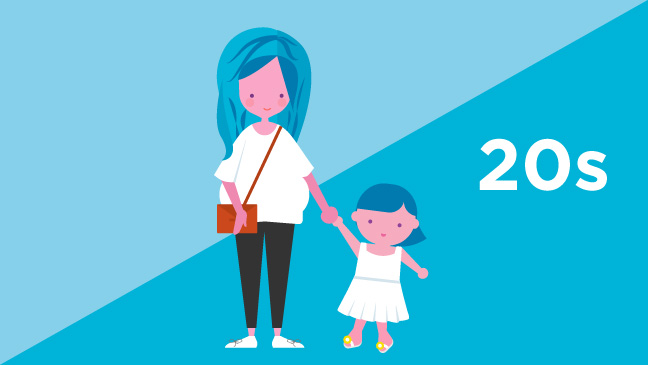
This sort of puts a woman in a hard place, since the time when women are most fertile is often the time when it would be less than ideal to have a baby. A woman’s twenties are by far her most fertile time, but it’s not always the best time to get pregnant.
Many women choose instead to wait until their thirties to become pregnant. This is often because a woman’s thirties is a time when she is more stable in her relationships and financially, and she might know who she is a little bit more than she did in her twenties.
But, what does getting pregnant in her thirties mean for a woman? Read on to find out more about getting pregnant in a woman’s thirties, how it differs from getting pregnant in her twenties and all the important things that women need to know about this time frame in her life.

A woman’s thirties is a very strange time when it comes to her fertility. For example, at the beginning of a woman’s thirties, her fertility is nearly at its peak, and is close to the same as it would be when she was in her twenties.
Around age 30 or age 31, women really don’t usually have too much to be concerned about as far as fertility goes.
However, once a woman reaches age 32 or so, her fertility will begin to slowly decline. There is usually a small drop in fertility around age 32 or so, but it’s not that dramatic of a drop at this point. Women in their early to mid thirties usually do still have a pretty good chance of conceiving normally.
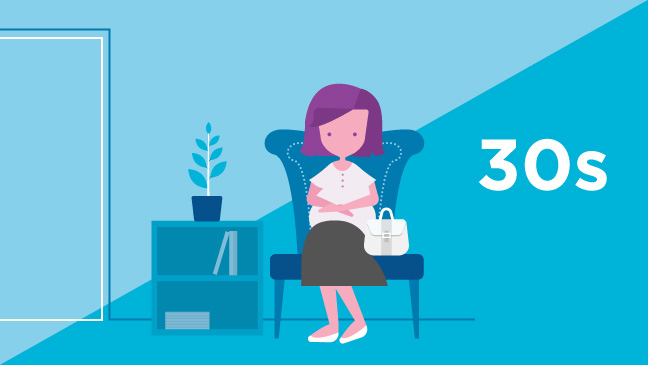
The bad news is that around age 35, that decline in fertility begins to speed up, and begins to happen much more quickly than before.
At age 30, a woman only has around a 20% chance of getting pregnant in any given monthly cycle. This might not sound like a very big chance, but when you think about the fact that at age 40, a woman’s chance of conceiving drops down to only around 5% in any given month.
This just means that women need to be very mindful of their fertility in their 30’s in order to give themselves the best possible chance of getting pregnant quickly, easily and healthily.
As a woman gets further into her thirties, her chances of conceiving will continue to drop as time progresses. However, more and more women today are having children well into their thirties.
In fact, women aged 30 to age 34 are having more babies than any other age group right now.
That’s crazy when you consider that this title used to belong to women in their early to mid twenties. However, as a woman gets further into her thirties, her chances of having a healthy baby and a healthy pregnancy will get lower.
In fact, once a woman hits age 40, she only has around a 5% chance of getting pregnant in any given month, and beyond around age 44, it is said to be virtually impossible for a woman to get pregnant using her own eggs. Though I know many who have!
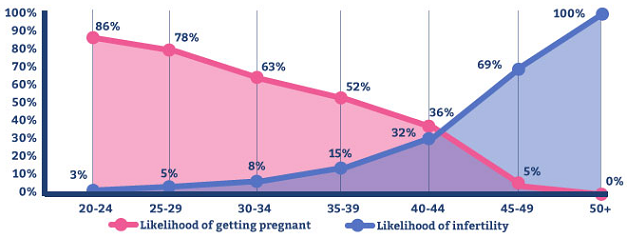
It is usually a widely known fact that around age 35 is the time frame that many women begin to see issues with their fertility. This is the time that women usually don’t have many remaining eggs left, and it can be a difficult time when it comes to getting pregnant in some cases. However, it is important to remember that this is not always true, and not all women have a terrible experience getting pregnant once they get into their mid thirties.

As we mentioned before, getting pregnant in your thirties is not always the easiest thing to do. The number of eggs that a woman will have left during her thirties is much less than in the decade before. However it is important to remember that even if a woman does get pregnant in her thirties, there are some problems that can come about as well.
First of all, women who are over age 35 are much more likely to have a baby with a birth defect or a neural tube defect. Down Syndrome is one birth defect that is much more common in babies born to mothers over age 35. By age 35, the chance of having a baby with Down Syndrome is 1 in around 350, compared to 1 in 1250 for a woman who is age 25.
Miscarriage risks are also higher for women who get pregnant in their mid thirties as well. Experts say that around 15 to 18 percent of pregnancies end in miscarriage for women in their mid thirties, compared to only around 10 percent in their early twenties. This news indicates that there definitely are some struggles associated with getting pregnant in your thirties, and these are things that women need to know and be aware of when they are thinking about trying to get pregnant after age 35.
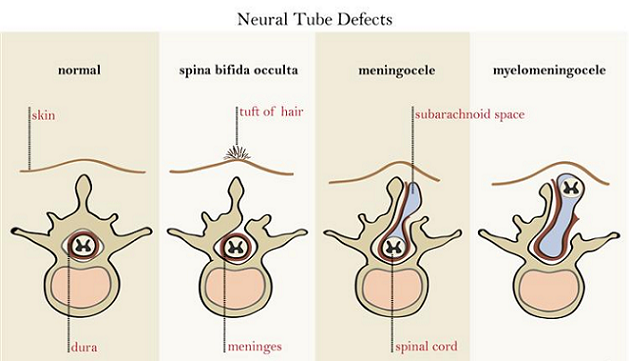

While we might have loaded you up on the negative aspects of getting pregnant in your thirties, it’s not all bad news!
In fact, there are many positive things associated with getting pregnant in your thirties. Women in their thirties are often much more prepared to have a baby when compared to younger women, both emotionally and financially. Usually, women in their thirties have already established their careers and are more secure in their relationships than younger women. In many cases, this makes them better candidates for getting pregnant than younger women.
More and more women are actually getting pregnant in their thirties than ever before. Women over age 30 account for around 12 percent of first time moms now, which is a bigger number than ever before, and around 52% of all births are to moms who are older than thirty, so this should give women reason to celebrate.
Although getting pregnant in your thirties might be more difficult, it is by no means impossible and women should take that into consideration.

For women who are under age 35, experts say that they should actively try to get pregnant for one full year’s time before they see a fertility doctor or fertility expert. This is the usual time frame for this sort of thing.
However, once a woman hits age 35, fertility issues sometimes start to multiply and speed up. It can seem like lots and lots of problems begin to hit once a woman hits age 35.
For this reason, doctors and experts say that women over age 35 should only try to conceive for six months and then they should seek help from a fertility doctor or specialist. This can give women a better chance of succeeding at getting pregnant when they see a doctor quickly. This way if there are any problems, they can be addressed right away, giving women a greater chance of success.
If you are over age 35 and have been trying to conceive for more than six months, go ahead and schedule an appointment with a fertility specialist or doctor.
This can help to address concerns before things get too bad, or too much time is “wasted.” Don’t be nervous about seeing your doctor, as this could give you some really great insight about what to do and how to go about getting pregnant quickly and easily. Sometimes, a doctor will be able to give you some really great tips and tricks that can help you to get pregnant that you might not have even thought about before.
If you are just starting out on your trying to conceive journey at age 35 or above, that’s okay too.
You can go ahead and make an appointment with your normal family doctor to discuss your plans to try to conceive. This can help to set the stage and build a good foundation for trying to get pregnant. Doing this can help to get an idea of your chances of getting pregnant and can help your doctor to determine if there are any issues in your family history or your personal medical history that might actually stand in the way of getting pregnant.
This is a really good place to start since your doctor will be able to access all of your medical history, test results, family history and more. Your doctor might be able to see something that you can’t see or that you wouldn’t ordinarily be thinking about when it comes to fertility.
It won’t hurt anything to take a quick visit to your doctor to discuss your plans for trying to get pregnant. Your doctor might also be able to recommend to you some things that you can try, such as a good brand of prenatal vitamin to get started on, which we are going to talk about next. Prenatal vitamins are a great place to start on trying to conceive.

The truth is, most of us do not eat as healthy as we should. Most of us have some big nutritional gaps in our daily diets and it can be very difficult to get the vitamins, minerals and nutrients that our bodies need just by consuming the right foods.
This is where a good daily vitamin can come in and help to bridge those nutritional gaps.
A good quality prenatal vitamin is a good idea to start on as soon as you start considering getting pregnant, so that your body has a chance to build up the proper nutrients before you even become pregnant.
A great thing about taking a prenatal vitamin before getting pregnant is that prenatal vitamins contain folic acid. Folic acid is one of the very most important nutrients for pregnant women, since it helps the baby to grow and develop. Folic acid is not only important for a baby’s growing brain, but also for bones and organs as well. Folic acid is especially important because it can help to prevent neural tube defects like spina bifida and other birth defects.
The problem with taking a prenatal vitamin only after finding out you are already pregnant is that most women do not know they are pregnant until about six or seven weeks in. In this case, the damage done by not having enough folic acid in the body can already be present. Spina Bifida and other neural tube defects often develop during the first few weeks of pregnancy, before a woman even has any indication that she is pregnant.
Therefore, by taking prenatal vitamins before conceiving, women can have that extra protection in case they do get pregnant, since they will have folic acid in their body already. This is a really great plan for women who are trying to get pregnant, and prenatal vitamins are very inexpensive to purchase.
Your doctor can help you to pick out a great brand and type of prenatal vitamin for your particular situation. Taking your prenatal vitamin every single day will help set the stage for a healthy pregnancy, so definitely look into taking a daily prenatal vitamin in order to up your chances of conceiving after age 35. If you are going to do only one thing to improve your fertility, a prenatal vitamin is a great place to start to really get things moving in the right direction. Many women swear by the Geritol brand of prenatals, which theor goes that because of its excess iron, their motto used to be “a baby in every bottle.”
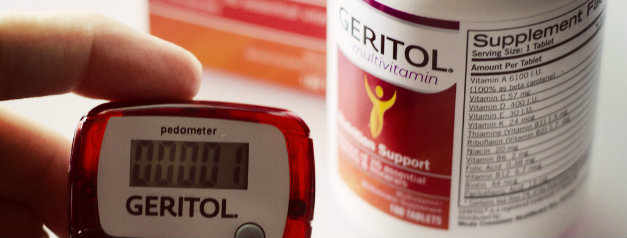

One of the most important things when it comes to fertility and conceiving is weight. Most people do not realize it, but being underweight or overweight either one can really have a dramatic effect on fertility. The reason is because your weight can affect your hormone function and this can, in turn, make it more difficult to conceive a baby.
It is a really good idea to get your weight under control before you start trying to conceive, whether or not you are underweight or overweight. Being over age 35 will sometimes cause you to have more problems when it comes to trying to conceive, so if you actually get that one part under control before you begin, it can make things a little bit easier on you.
It is a really good idea to go ahead and handle all of the “easy” to handle things before you start trying to conceive and get them all out of the way. Take care of what you can on your own, and consider it a good way to DIY your fertility on your own. Pretty much, keep in mind that anything you can do on your own to increase your fertility will really be a great asset towards helping you get pregnant.
If you are overweight and trying to conceive over the age of 35, the good news is that doctors say that losing as little as five to ten pounds can really do a lot to boost your fertility.
In a nutshell, losing a few pounds, such as five to ten, can really help to “reset” your metabolism and help your hormones to get back on track.
To jump start weight loss, there are some simple things that you can try to do to get going. First of all, drinking more water is always a good idea and in some cases can give weight loss a boost. More water and fewer drinks like coffee, soda and sugary juices are a really great place to start.
When it comes to food, first of all you should think about the things that you should remove from your diet. Try your best to cut out things like fast foods, sugary snacks and drinks, chips and other processed foods. All of these things can distort your hormone levels and cause you to pack on the pounds. By cutting them out, you can often lose a little bit of weight.
So, what should you replace those bad foods with?
Recommended by experts are things like lean meats and beans for proteins, organic fruits and veggies, whole grains like brown rice and whole wheat bread, and full fat dairy products like milk and cheese. A balanced diet made up of these items will help to keep weight under control which is a really good thing when you are trying to conceive.

Another thing that women can do on their own to help boost their fertility is to make sure that they are getting enough exercise. The truth of the matter is, most of us do not get enough daily activity. We often spend lots of time behind a desk, or on a phone, or computer, or even watching TV at night.
We often do not get many chances to get out and get exercise. This is especially true during the winter months, in colder climates, or for women who have little kids or other responsibilities that keep them tied up for most of their time.
However, exercise and physical activity are very important for overall physical health and fertility. If a woman is overweight, getting enough exercise can help her to lose weight, which can reset the hormones and boost overall fertility. Exercise can also help with stress relief, which can improve overall fertility as well.
Simply put, do not underestimate the power of exercise and the positive effects that it can have on fertility and overall health.
Getting out of the house and getting some physical activity can really be great for overall health and wellness, and not just for fertility reasons. The mental and emotional benefits are huge for exercise and wellness.

Another really important aspect of getting pregnant when you are over age 35 and overall fertility is the importance of getting rid of bad habits. This is incredibly important for all women, but might be even more important for women who are over age 35, since so many other things might affect fertility for these women.
First of all, smoking is one of the things that is incredibly detrimental for fertility. This is true for both men and women, so both the male and female partners should make it a very big point to quit smoking before beginning trying to conceive. If a couple is already trying to conceive, and they still smoke, it’s even more important for them to quit as soon as possible.
Smoking can lower sperm count and sperm motility in men, and can damage overall fertility in women. Men and women should definitely make it a point to quit smoking before they try to conceive, or at least cut back on smoking drastically before they start trying to conceive. It is imperative that men and women stop smoking completely before they do have a baby, since secondhand smoke can be incredibly damaging to a baby’s health.
Another important thing to remember when it comes to fertility is that alcohol can be incredibly damaging to fertility. Much like smoking, alcohol can hurt fertility in both men and women, so no one is safe from it’s damaging effects while trying to conceive.
For men, alcohol use can lower sperm count and sperm motility, and can even cause sperm to be misshapen or strangely shaped.
For women, using alcohol in excess can make it incredibly difficult to get pregnant. In the event that a woman does get pregnant and she uses alcohol on a regular basis, it can lead to fetal alcohol syndrome, which can cause significant birth defects in babies. This is one of the reasons why it is so very important for women who are trying to conceive to avoid using alcohol.
Likewise, illegal drug use can lead to very damaging problems with fertility, as well as tons of other body processes as well. Avoiding drugs is definitely a good idea, since they are not only illegal and damaging to overall health, but very damaging to overall fertility as well. It is important for women to keep these things in mind when they are trying to conceive a baby after age 35, but at any age as well.

Of course, this is something that we have all heard a million times, and something that has been drilled into our heads since we were kids, but drinking plenty of water is of the utmost importance when you are trying to conceive, as well as just in general.
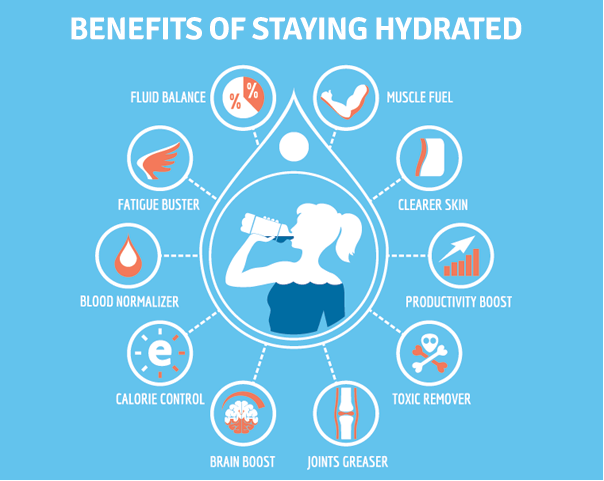
We all know that drinking water is so important to all body processes, but it is absolutely imperative for fertility.
First of all, drinking plenty of water can help to flush your body of any toxins or impurities that may exist inside the body. This is especially good news for women who might be trying “detox” their bodies after stopping bad habits or trying to change their eating habits. The more water you drink, the more your body will be flushed, which is a great thing.
Drinking plenty of water also acts as a uterine tonic, which is great for refreshing and supporting the uterus. Plenty of water also helps to support good egg health, and can help the eggs to grow and mature properly.
It is also important to keep in mind that drinking plenty of water can also be extremely helpful in increasing the amount of cervical mucus that a woman’s body produces. Cervical mucus helps the sperm attach in order to travel to the egg. Cervical mucus is incredibly helpful when it comes to conception, so drinking more water is an easy way to make that happen.
Now, as for how much water you should drink, that will definitely vary from doctor to doctor depending on who you ask. Basically, somewhere between 12 to 14 glasses of water per day is a good place to start in order to boost your fertility. If you have any questions about increasing your fertility with drinking more water, make sure to ask your doctor for advice.

Many women actually find success with boosting fertility in very unexpected ways. Two of the most popularly used and well received alternative fertility therapies are fertility acupuncture and fertility massage.
These are both therapies that are gaining in popularity but aren’t usually common knowledge. They have proven to be very effective in boosting fertility in some women, and many women swear by these practices in order to help with boosting fertility. Definitely do some research into these practices and decide for yourself whether or not some of these practices would be right for you in your particular situation. Some of these might be right for some women but not for others. Just keep these things in mind for the best results when trying alternative therapies for fertility.
Acupuncture is the ancient practice of inserting tiny, super thin needles into different parts of the body. The different points of the body where the needles are inserted will provide different results and can help to regulate different body processes.
Fertility acupuncture focuses solely on helping with different body processes that can help to improve fertility.
For women who suffer from thyroid problems like over functioning thyroid or under functioning thyroid, fertility acupuncture can really be helpful. Most experts say that fertility acupuncture can help with balancing out hormone levels and restoring overall balance of the body in order to boost fertility. It is of the utmost importance, however, to make sure that you are dealing with an experienced acupuncture therapist who really knows what they are doing when it comes to fertility acupuncture. It’s not a job that just anyone can do, even a regular acupuncture therapist and you certainly have to find someone who knows what they are doing in order to succeed with the best results.
Fertility massage is also another alternative therapy method that is gaining in popularity when it comes to boosting fertility. Fertility massage is an alternative therapy that doesn’t involve any medications, chemicals or anything else that could be potentially dangerous.
A really great thing about fertility massage is that not only can it be done by a professional, but women can also be self taught to do fertility massage on themselves as well, which can be really helpful. There are so many benefits of fertility massage and they can really help to boost fertility in women. It really is surprising that this method of alternative fertility treatment is not more popular than it is, seeing how easy it is to do, and the fact that women can actually perform this on themselves.
First of all, fertility massage can help to improve circulation in the body, which can get rid of stagnant blood from the uterus. Improving blood flow to the uterus is super helfpul for fertility. Fertility massage is also helpful for improving a tilted uterus, which can be a problem for some women.
Other benefits of fertility massage are helping with menstrual pain and clotting, and fertility massage can even help to break down fibroids and cysts which can be incredibly detrimental to fertility.
Fertility massage can also help to improve liver function and to regulate a woman’s menstrual periods.
Seriously, it might sound a bit crazy, but some experts say that fertility massage can help with PCOS, endometriosis, fibroids, cysts, hormonal imbalances, super heavy periods, twisted or blocked fallopian tubes, and even more fertility issues.
You can find a doctor or expert to help learn how to do fertility massage, or you can even get some information from YouTube on how to perform a self fertility massage. Fertility massage can be a very beneficial thing for women who are trying to get pregnant.
For women who are over 35 and are trying to get pregnant, it might be a good idea to try to learn how to do fertility massage or try to find an expert to perform fertility acupuncture. These methods of alternative fertility medicine are super helpful because they don’t have to include any type of medication or any type of chemical interference.
Women over 35 really need to do whatever they can to boost their overall fertility, and both of these are really great options that don’t require too much medical or doctor intervention. Definitely take these things into consideration if you are a woman who is trying to conceive over age 35.

One important thing to note when it comes to fertility after age 35 and trying to conceive is to note that fertility issues are not just female problems. Fertility issues are equally a problem when it comes to men as well. This is a reason that men’s fertility should be taken into consideration as well.
First of all, men should have just as many fertility checkups and doctor’s visits as women. Many times, there are issues that are actually men’s fertility issues that can be overlooked, especially if only women are the ones going to the doctor for fertility related issues.
Another important thing to remember is that men need to be just as focused on their fertility health as women do. This means, men need to pay close attention to their weight too. Men need to be focused on their diet and what they are putting in their bodies as well as women do. Men need to make it a point to stop smoking, drinking, or using illegal drugs when they are trying to conceive.
Another important thing for men is to remember that the testicles should not be getting overheated while trying to conceive. This is the reason why the testicles are located out of the body, to keep them a few degrees cooler than the rest of the body. For this reason, when the testicles get overheated, it can actually kill sperm.
What this means for men who are trying to conceive is that they will have to take care to keep the testicles cool. What does this mean?
In this case, keeping the testicles cool means avoiding hot tubs, spas, steam rooms, hot baths and saunas that could cause the testicles to overheat. This also means that guys who are trying to conceive should also try really hard to avoid wearing clothing that is “too tight”. Clothing that is too tight, like biking shorts, tight shorts, tight pants, and brief style underwear can cause the body to overheat and can kill sperm. This is an important thing to remember when men are trying to conceive.
It is super important for men to do all of the same health related things as women do when it is time to try to conceive. Women should not have to deal with all of the pressure, the thing is, both men and women have to take the same considerations when trying to conceive.

One of the most important things to remember about trying to conceive at any age, but more so over the age of 35, is that you have to know when your fertile days are.
There are only a few days during each month that it is even possible for women to get pregnant, and for women who are over age 35, there really is not much time to waste.
Women over age 35 definitely need to make the most of their fertile time, and that includes knowing when their fertile time is. The way that women’s fertility works is that when the egg is released from the body, it only lives for somewhere around 24 hours in total. After that time, it begins to die and disintegrate. This is why it is so important for women to know for sure when their ovulation is going to occur. You have to be able to plan to have sex at the proper times in order to have the best chances of getting pregnant. It can be very difficult to pinpoint the right times to have sex for conception, but luckily, we live in a time where there are many tools at our disposal to help with fertility tracking. Read on for some of the most common and popular ways out there to track fertility and to find out when you are ovulating. This will be one of the most helpful things that you can do when trying to conceive over the age of 35.

Luckily for us, there are many different ways to track fertility to keep an eye on fertile days and know when to have sex for the greatest chance of getting pregnant. If you are a woman over 35 who is trying to conceive, it is going to be of the utmost importance for you to know when you are fertile.
If you are just starting out, a great idea for you would be to purchase an over the counter ovulation predictor kit. These kits are usually very inexpensive, and you can get them at a local grocery store, drugstore or even order them online and have them shipped to your home.
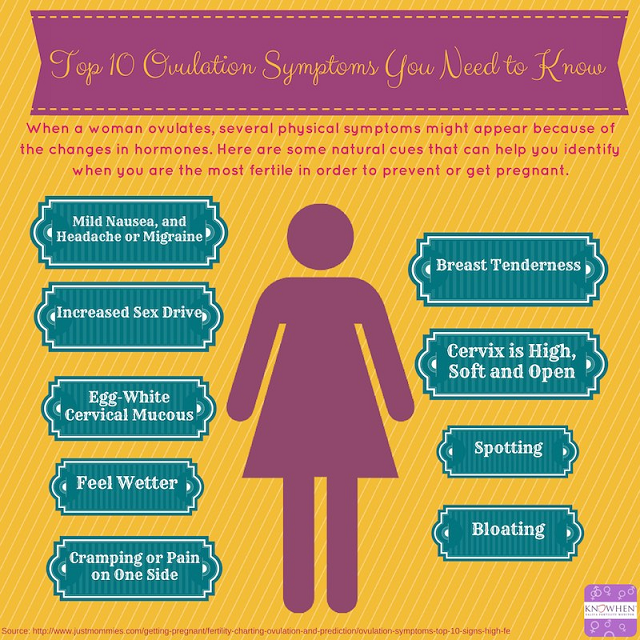
You can even get 20 free OPKs just for trying the ConceiveEasy 2-Month Starter Kit above!
The over the counter ovulation predictor kit works much like an at home pregnancy test, checking a woman’s urine for levels of LH in her urine. LH is luteinizing hormone, which experiences a surge in a woman’s body just prior to ovulation. LH indicates that a woman’s body is most likely getting ready to experience ovulation. LH is the biggest indicating factor of ovulation for women, so it is the key factor to be on the lookout for when trying to conceive.
When a woman uses an ovulation predictor test, it will give both a control line and a test line. The control line will be a certain darkness any time that a woman takes the test. However, the test line will vary in darkness and intensity depending on the day and the closer or further a woman is to ovulation time.
Once a woman takes the ovulation test and sees that the test line and the control line are the same color darkness, this indicates a “positive” test result.
This means that ovulation will usually occur within 24 hours of a positive test result. The thing about using ovulation predictor kit tests is that the LH surge can sometimes happen very quickly within the body, and sometimes women can miss out on noticing the LH surge. This is why in some cases it can be a very good idea for women to go ahead and test multiple times per day when they are close to what they think should be their ovulation time. This can give a better chance of getting a positive ovulation test, so definitely keep this in mind when you are trying to get started using ovulation predictor tests.

In addition to ovulation predictor tests, there are many other ways to track ovulation as well so that women can have an even better idea of when their fertile time is. The good news is that women can use any or all of these methods of fertility tracking. The more methods are used, the better the chances of knowing when ovulation will occur.
Another great way to track fertility is by charting basal body temperature. This is done by using a special basal thermometer, which you can get in a drug store or online. This thermometer measures temperature down to a very detailed degree. By measuring basal body temperature every single day, before getting out of bed in the morning, women can really get an idea of their body temperature every single day. Usually, this temperature is charted on a chart, every single day.
After several weeks or months of this, women will notice a pattern. When the daily temperature spikes (just a few degrees or so), it will indicate that ovulation is probably going to occur soon. This is a very detailed and perhaps a little complex way to track ovulation and know when fertile days are expected to occur. It usually takes at least a few month’s time of tracking ovulation with a basal body thermometer to notice a pattern of temperature spikes.

Although using ovulation predictor kits and basal body temperature charting are great ways to track ovulation, there are even more ways out there for women to keep track of their fertile days and know when they are expected to ovulate.
Fertility Apps – First of all, we all have our smartphones on us all the time, so it is only natural that we could use fertility apps to help track ovulation and to know when our most fertile days are. These apps are sometimes free and sometimes cost money, and they rely heavily on the information that women enter into the app, such as days they have sex, days of their periods, and so forth.
It’s definitely important to remember that when you use a fertility tracking app, that you have to keep entering the information regularly in order to see accurate results. The main success of fertility apps depend on entering all of the proper information, so definitely keep that in mind while you are deciding on whether or not a fertility tracking app is right for you.
Cervical Mucus – There are other ways of tracking fertility as well. One way is by paying attention to your cervical mucus, which is the natural mucus secretions of the vagina. This mucus will change dramatically over the course of a woman’s cycle, and these changes can actually give a lot of interesting information as to what part of a woman’s cycle she is in. When the cervical mucus turns into an egg white consistency, stretchy, clear and stringy, this is when cervical mucus is considered to be fertile. This mucus can indicate that ovulation is coming soon.
Cervical Position – Another way to track fertility on your own is by noting the position of the cervix in the body. This way takes some getting used to, since women will have to actually learn how to feel their cervix and note the position and feeling of it. This can be a little bit strange at first, but it can actually be very helpful in determining when a woman’s fertile days are.
For example, if the cervix feels soft, like the feeling of touching your lips, as well as high, open and wet, that is considered to be a fertile cervical position and indicates that ovulation is extremely near. In contrast, when the cervix is low, dry, closed and feels harder, that indicates that it is not near ovulation time. Once a woman learns how to track her ovulation through noting her cervical position, it can be really helpful for her in knowing how to track her fertile days and know when she is most fertile.

It might seem like we have been focused a lot on ovulation and how to track fertile days. This is because when a woman is over age 35 and she wants to try to conceive, she is likely to start having problems with ovulation
It is likely that a woman will experience ovulation issues or have a diminished egg supply after age 35 that will make it exceptionally harder for her to get pregnant. This means that tracking ovulation and knowing when the fertile days are will be of the utmost importance for women who are trying to conceive at this stage of life.
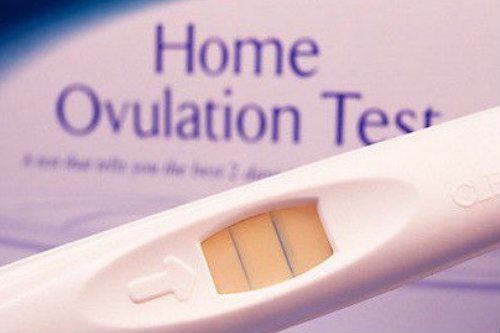
When there is not much time to waste, it is even more important for women to know when they are fertile.
This can help to get ahead when it comes to fertility tracking and can increase chances of conceiving. Please do not discount the importance of tracking fertility and tracking ovulation and knowing when the most fertile days are. This is one of the most important parts of trying to conceive, so if you are only going to do one single thing when it comes getting pregnant, make tracking your fertility be the one thing.

If you are already taking a daily prenatal vitamin when you are trying to conceive after age 35, and you are already becoming familiar with fertility tracking, it might be time to start to try to boost your fertility in another different way. Herbal fertility supplements can be very helpful for women who are trying to conceive. Herbal fertility medicine has been around for thousands of years and involves using natural herbal remedies to improve fertility in all sorts of ways.
There are so many different fertility herbs out there, it can actually seem a little bit overwhelming. This is where herbal fertility supplements can come in handy. It can be very difficult to know which herbal supplements are good for which fertility issue, and the correct dosage of which ones to take.
Different fertility herbs should be used for different things and they should all be done at different times during a woman’s cycle. It can be so very overwhelming and hard to keep track of. This is actually one of the reasons that some women choose not to try out fertility herbs, since it can be so nerve wracking and overwhelming. This is where fertility supplements can come in to play.
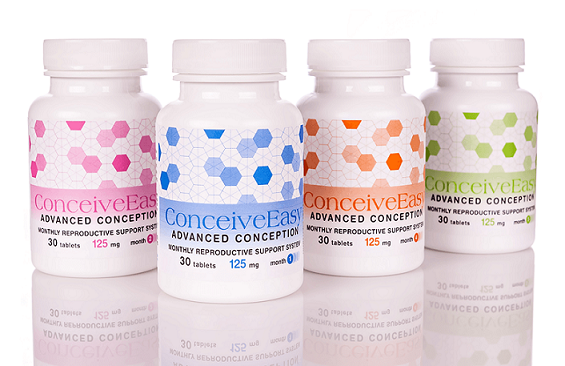
Herbal fertility supplements are available online, and you can have them delivered directly to your doorstep with minimal waiting. ConceiveEasy is one brand of herbal fertility supplement that is really popular and really a great supplement. These supplements can provide women with the correct dosages and amounts of all of the most popular, powerful and potent fertility supplements that are available.
With these fertility supplements, women don’t have to worry about using the right dosages of the right fertility herbs, all of that guesswork has already been taken care of. This can make fertility herbal supplements like ConceiveEasy a great choice for women who are wanting to boost their fertility in a more natural way.
Another great thing about fertility supplements like this is that they are made from all natural ingredients so women don’t have to worry about any type of chemicals in their bodies or any sort of reactions. This can make them a really great option. If you are a woman who is trying to conceive over age 35, definitely consider giving fertility herbal supplements like this a try. They can be super helpful for many women and they are not as scary or intimidating as using traditional herbal fertility supplements.

It is super important to be real with yourself and your partner when it comes to getting pregnant after age 35 and how to fulfill your fertility needs. It can be really difficult to know how hard or how easy it will be to get pregnant after age 35. The truth of the matter is that every woman’s body is different and every woman’s needs are different. Some women will have plenty of viable eggs remaining by the time they reach age 35, and some women will find that they will be having a lot of trouble and problems getting pregnant. It’s really important to note that getting pregnant at age 35 will take much longer usually than it does for women in their twenties.
It’s not exactly ideal news, that women who have less time left to get pregnant will need to be more patient when to comes to getting pregnant, but that is the truth of the matter.
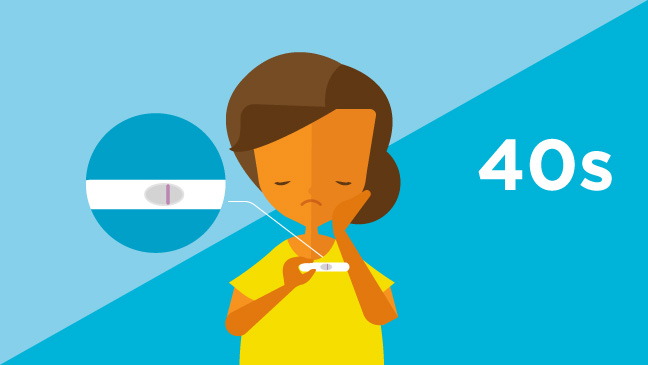
However this does not mean that it is impossible for women over age 35 (or even 40+) to get pregnant.
It does, however, mean that women over age 35 who want to get pregnant will have to be super focused and really try their hardest on how to conceive at this age.
Because of the fact that it will take longer for women over age 35 to get pregnant, women have to be aware of this and they have to be patient when it comes to their fertility. This can be super difficult since women have to also realize that time is ticking and women might not have much time left to conceive.
It can be a very difficult thing to balance, between being patient about conceiving and knowing that time is of the essence. This is why in most cases, talking with a doctor is a really great idea in order for couples to get an entire picture of their fertility health and know what to do next. It is a really great idea, because sometimes couples will have to seek medical help to get pregnant after age 35.
Read on for some more information about what can happen for women who need to seek medical help to get pregnant.

There can be many different problems that might affect fertility for women over age 35. When women have been trying to get pregnant on their own, and have not had much success, they might need to see a fertility doctor for extra help. There might be other issues at play in fertility problems. The problem is not always a lack of eggs or ovulation problems.
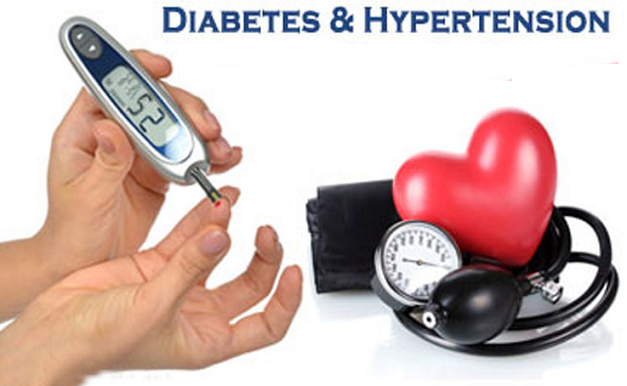
First of all, women over age 35 are more likely to have health issues like diabetes or hypertension. These health issues and problems can sometimes make it more difficult for women to conceive. Women over age 35 are more likely to have regular, routine health problems that are not exactly surprising, but may still cause quite a bit of trouble when it comes to trying to conceive. This is why it is so very important for women who are over age 35 and trying to conceive to live as healthily as possible so that they are able to conceive as easily as possible.
Women over age 35 are more likely to also have scar tissue left over around the cervix, either from different infections or from surgery. This scar tissue can make it harder for women to get pregnant.
Also, once women hit a certain age, they are more likely to experience a decrease in cervical fluid, which can make it more difficult for women to get pregnant. Cervical fluid is extremely important for helping the sperm to travel to the egg.
Other problems that can exist for women over age 35 include endometriosis, which can cause scar tissue to form around the fallopian tubes.
Fibroids are other issues that can affect fertility in women over age 35 as well. It’s super important to visit a doctor to find out about what can be affecting your own fertility.
The good news is that there are lots of prescreening tests that can be done to help women know their risks. These days, doctors are able to easily and quickly screen women for any potential problems that might exist or that might pop up later on down the line. This can be incredibly helpful when trying to conceive a baby after age 35.
Women over age 35 are also more likely to have a baby with a birth defect or medical problem, and they are also more likely to give birth to multiples as well, since ovulation is sometimes a little wacky when women get to this age. It is so important for women to visit their doctors as soon as possible when wanting to conceive over age 35.
Some of the problems that can develop for couples wanting to conceive are the result of issues that can be fixed. For example, if there is a problem related to male fertility, it can be usually fixed fairly easily. If a woman has a structural problem like a blocked fallopian tube, this can sometimes be fixed as well. The main thing to remember is not to panic if you are trying to conceive over age 35 and to keep in mind that many fertility problems can be fixed and repaired.
Just because there are difficulties in a woman’s fertility or a woman getting pregnant, doesn’t mean there is no possibility of being able to get pregnant. Sometimes, women will just need to take some time to regroup and figure out how to better address the problems that might be happening.

There are actually many things that doctors can do to help women who are over age 35 and trying to conceive. The first thing will probably be a full physical for both the male and the female, to determine if there are any health problems that are affecting fertility. Sometimes this means a physical exam, and sometimes it can be blood tests or other screenings. For men, this usually means that a sperm count and complete sperm test. This can help to get an inside look at any problems that might be easily reversible. It is important however, to make sure that both men and women are involved in the fertility testing process.
This is because while infertility is usually thought of as a woman’s problem, it really is a problem that is common in both men and women. In fact, up to 30 percent of all fertility issues are related to male factor fertility problems. Another 30 percent or so of all fertility issues are related to female factor fertility problems. The final 30 percent or so of all fertility issues are due to a combination of male and female fertility problems.
After a doctor performs some tests for couples to indicate what their potential problems could be when it comes to trying to conceive, he or she will help a couple come up with a plan for conceiving. In some cases, if a woman is simply not ovulating properly, a doctor can prescribe a medication like Clomid to help induce ovulation.
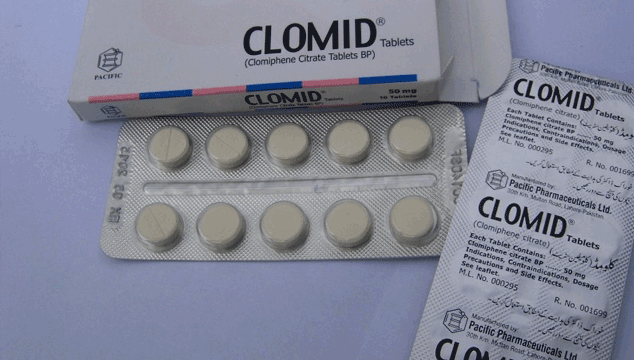
These medications are usually very effective at helping a woman ovulate and can be very helpful for couples who are trying to conceive. There are so many other methods of helping with conception as well. IVF is sometimes a very effective method of conceiving for women over age 35, but there are a lot of different factors that have to go into consideration with these sorts of things.
The older a woman gets, and the more physical problems that she has, the less likely it will be that IVF will be successful. This is why it is so important to go over all of the options with your doctor beforehand so that you can know what the appropriate options are for your particular case. It’s important to never give up hope and never think that conceiving is out of reach. There is usually, in most cases, always something that can be done to help boost fertility and successfully conceive.
As a woman gets older, and depending on her individual medical history and health problems, IVF or IUI might not actually be a viable option anymore. In these cases, couples will need to turn to a different method of trying to conceive and assisted reproductive technology.
At this point, women can start to consider using donor eggs or even using a surrogate to carry their baby. There is a point when it will just not be a viable option for women to carry a baby in their own womb, and there is really no way to tell when that time will come for women.
Every person’s body is so dramatically different, it is so hard to tell this without an extensive doctor’s visit and/or testing. Even for women who do find out that it will be impossible to undergo IVF or IUI type treatments and have to face the news that they might not be able to use donor eggs or a surrogate, there are so many adoption options out there. There is always a way for couples to make their dreams of becoming parents come true. It can sometimes be very difficult to understand when we are faced with bad news regarding our fertility, but there are so many options out there that can help us to reach our parenting dreams.

As a woman gets older, it is natural that her fertility will begin to decline. We have long been taught that age 35 is “the cutoff” for fertility and that after a woman hits her 35th birthday, she will no longer be able to conceive a baby.
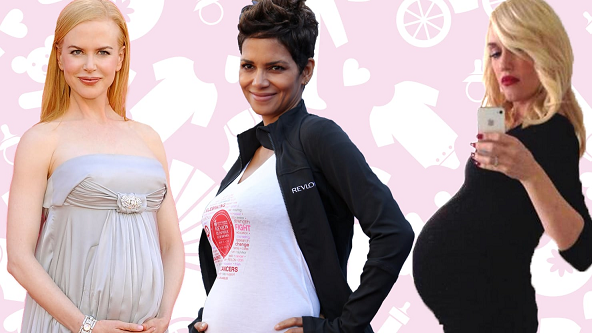
However, that is not always the case, there are many women who are able to naturally conceive babies up into their mid-thirties and even forties and beyond.
35 is really quite young!
The truth is that there is really no “cutoff” date that women are watching out for when it comes to fertility. Some women will stay fertile for a long time after age 35 and some women will experience fertility problems well before their 35th birthday.
It really just depends on each woman’s body and each woman’s chemical makeup on how their bodies will age and react to outside influences. It is so hard to tell what is actually going to happen regarding fertility in women. Just because one woman has a particular experience, doesn’t mean another woman will have the same experience.
Even women in the same family will not always have the same experiences when it comes to trying to conceive. It is super important to keep this in mind when trying to conceive over age 35, since this can sometimes be a really hard time in a woman’s life and can sometimes be a very discouraging time.
The best advice for women who are trying to conceive after age 35 is to be patient and do not panic just because you are getting older.
There are so many different things that can affect fertility, and every person is different. Take into consideration the things that you can do on your own to make yourself healthier and stronger, and do all of the things that you can possibly do to increase and improve your fertility on your own without seeing a doctor, or before the point in time that you need to see a doctor. By taking good care of your body and keeping in good shape, you are likely to improve your fertility. By taking prenatal vitamins and other fertility supplements, you are being proactive about your health and fertility and can really up your chances of getting pregnant quickly and easily. Basically put, whatever you can do to increase your chances of getting pregnant is a good thing to do in this situation, so keep that in mind.
Beyond going to see a fertility specialist or doctor, there are tons of actual things that women and couples in general can do on their own in order to improve fertility. It doesn’t mean that you have to wait until seeing a fertility specialist is in the works to get help with trying to conceive.
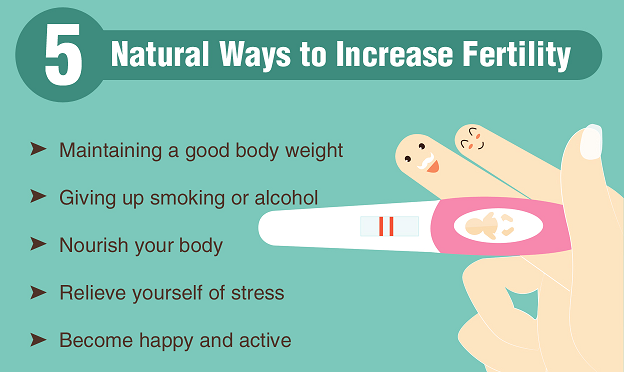
There is a lot of things that women can do on their own to improve their overall health and fertility. Plus, when you add in the fact that doctors and fertility experts can help a ton as well. Basically put, there is a lot of different things that can impact fertility and lots of things that can be done to give a woman a better chance of conceiving and having a healthy pregnancy. Please, please, please if you are in this situation, do not give up and do not believe that it will be impossible to conceive- it CAN happen!

One thing that is incredibly important to mention in this situation of trying to conceive after age 35 is not to forget the emotional toll that trying to get pregnant can take on a woman. It can be extremely difficult to deal with something as scary as trying to get pregnant and not knowing if your fertility will allow you to achieve your dreams.
Many women get so caught up in the actual process of getting pregnant that they forget to take care of their emotional needs. It can be very overwhelming to have to try to track your fertility and know when you are ovulating in order to have the best chance of conceiving.
It can also really take a toll on a relationship, so it is very important for couples to stay connected when they are trying to conceive. It can quite often cause couples to drift apart or experience problems in their relationships, since trying to conceive can often turn into a chore. It is so important for couples to try to maintain that connection and that love even when they are in the depths of trying to conceive.
Make time to continue to date each other and spend quality time together even when you are not having your fertile time. It will be so helpful to your relationship to maintain your connection with your partner and do what you have to do to keep the love alive.
It’s also important to remember to maintain your own emotional health as well. Trying to conceive after age 35 is super difficult not only on the physical realm but on the emotional and mental health as well. It can be really overwhelming to say the least.
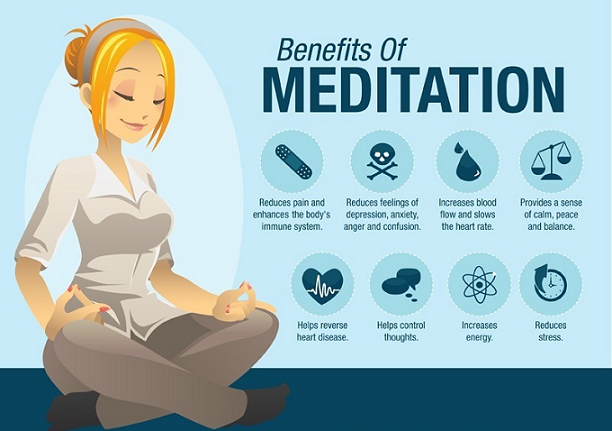
Sometimes, it is a good idea to talk to a counselor, therapist, or a trusted friend when you are trying to conceive, in order to get some of those tough feelings out in the open. Also, make sure to take time for yourself, whether it is for meditation, prayer, or just reflection. Don’t be worried about things all the time, take a little bit of time to let loose.
Also, make sure to get enough sleep and also enough exercise. These things can help to relieve stress and keep your mind clear in these situations. Having a lot of stress on your mind can make trying to conceive even harder, so make sure to do whatever it takes to try to ease your mind and keep a clear head. Stress is not fertility’s friend, so do whatever you have to do to remain calm in these situations. There are tons of things that can be done to reduce stress, whether it be a hobby, an exercise routine, more sleep, or even just opening up communications between yourself and your partner or a trusted friend or family member.

To sum up every thing that has already previously been mentioned in this article, it is true that women’s fertility does start to wane near her mid thirties. This is not the case for all women, of course, and only some women will experience these problems. Some women stay fertile much longer than others, and there is no way to tell what will happen in your own particular situation.
Definitely keep your doctor involved in the entire process, from start to finish. Visit your doctor beforehand and during the process as well, to keep up to date and involved with how your health and fertility is progressing.
There are so many different things that you can do on your own to improve your fertility and overall health. Try to take some initiative for your own fertility and do whatever you can do to improve your overall health. Do your own research as well, beyond what is already listed here, and find your own ideas on how to improve your fertility. There really are tons of options available out there, and honestly put, the more things that you add together to improve your fertility, the better your chances will be.
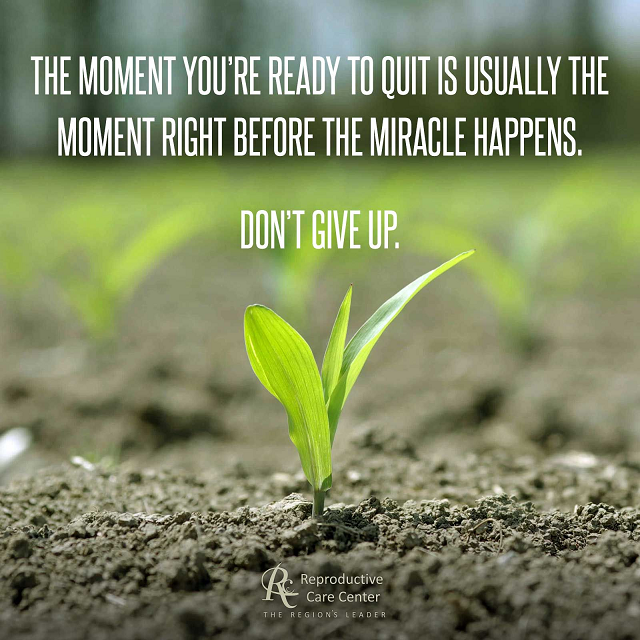
When it comes to trying to conceive after age 35, chances are, you probably already know that it is not going to be the easiest road to go down. There might be things that pop up to impact your fertility, and there might be roadblocks in the way sometimes.
The good news of the matter is that so much can be done to boost fertility and help to better the chances of a healthy pregnancy after age 35 and beyond.
Being over 30 and wanting to get pregnant is no longer a “death sentence” as it once was, and more and more women are able to have kids and get pregnant later in life. It all really just comes down to your overall health and the physical makeup of your body. Every woman is different and every woman will have different results.
Please do not hesitate to contact your doctor and have a serious and honest discussion about trying to conceive after age 35. There might need to be some hard discussions to be had about these subjects and there might sometimes need to be a reality check had in some situations, but honestly, in most of the situations these days, women are able to get pregnant and have healthy pregnancies for the entire duration of her 30s, if not beyond.
Best of luck on your trying to conceive journey and keep up your faith so that you will be able to have the best possible luck.
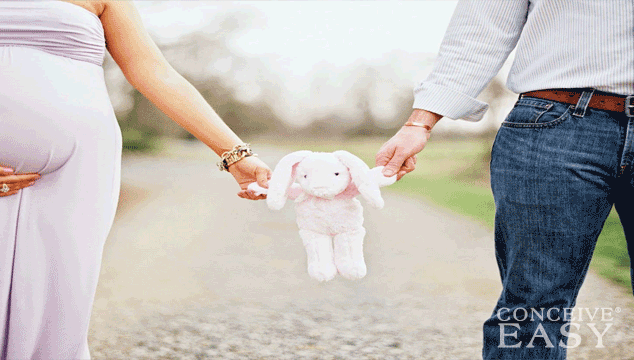

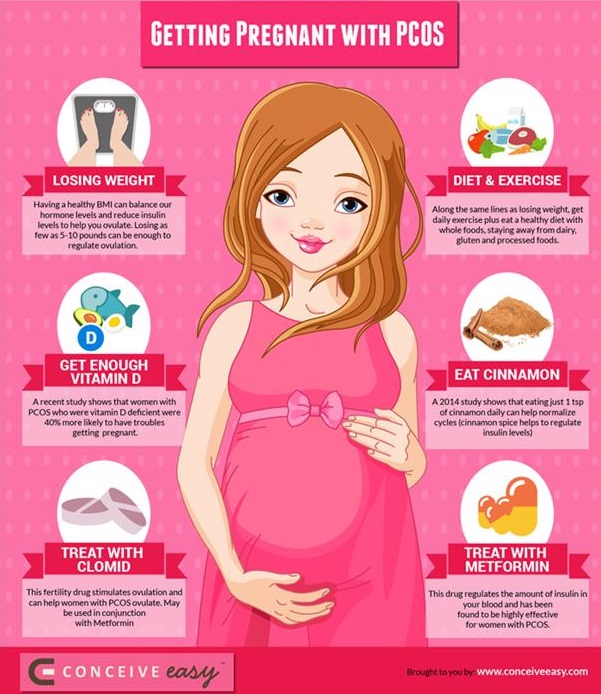








Comments